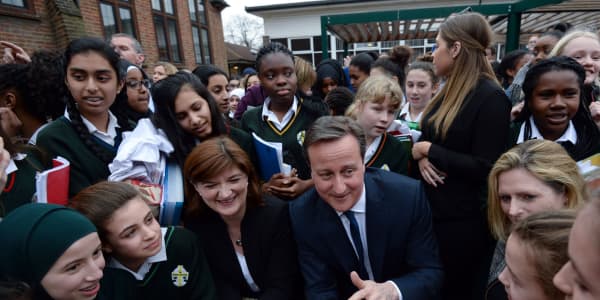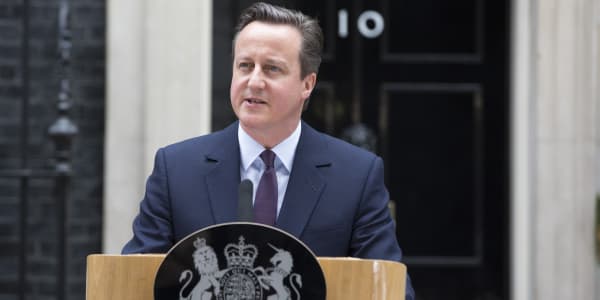The theatrics expecting to follow Thursday's U.K. election could turn out to be a Scottish play.
The Scottish National Party (SNP)'s representation in the U.K.'s central parliament is set to skyrocket to around 50 seats from just six, making it the third-biggest party in the House of Commons and putting it at center stage.
One forecast even suggests that the Nationalists—who led the push for a referendum on Scottish independence from the United Kingdom last year—could win every single one of Scotland's 59 seats in Westminster.
Here, we take a look at why and how momentum has built behind the SNP and why the party will be important long after the election.
Labour losses
The SNP has traditionally vied with the U.K's Labour Party for Scottish votes, so the Nationalists' success makes Labour's bid to unseat the ruling Conservative Party more difficult.
John Curtice, professor of politics at the University of Strathclyde and author of the "What Scotland Thinks" blog, predicts Labour will only hold on to between 4-12 seats in Scotland.
"A few will survive, the question is how many," Curtice told CNBC.
Read MoreWhyLabour won't 'throw in the towel' on Scotland
He argued that the center-left Labour Party had angered some of its Scottish supporters by allying with the Conservative Party as it campaigned for a "No" vote in last September's independence referendum.
"In the past, you would get people on the Left voting for the SNP in the Scottish Parliament and Labour in Westminster elections—but that's changing," Curtice said.
And Labour are unlikely to get much of a boost from tactical voting by those Scots who would usually vote for the Conservative or Liberal Democrat parties—purely because there aren't that many of them left.
Aye or Naw?
The referendum on independence may not have resulted in the "Yes" vote for which the SNP campaigned, but it helped re-awaken political engagement in the country. In consequence, a higher turnout is expected on Thursday than the 63.8 percent of Scots who voted in the 2010 General Election.
Almost 85 percent of Scots voted in the independence referendum. Around 90 percent of those who voted "Yes" are going to vote for the SNP in these elections, Curtice estimated.
"It is absolutely fundamental to this election," he said.
Despite failing to secure independence, the SNP led a strong campaign in the run-up to the referendum that made Westminster politicians look complacent—many only seemed to take notice when a poll in the "Sunday Times" newspaper just weeks before the vote suggested that the "Yes" campaign would win.
Wuid ye?
The possibility of a Labour-SNP coalition—an arrangement that SNP leader Nicola Sturgeon seemed keen on earlier in this year's campaign—has been one of the Conservative Party's main lines of attack against Labour.
Traditionally, the left-leaning SNP is seen having more in common with the Labour Party than the center-right Conservatives. However, Labour leader Ed Miliband has said repeatedly that Labour will not go into coalition with the SNP.
Still, in a neck-and-neck race, there is the possibility that Miliband could enter a minority government and rely on SNP support for key votes—and that this could temper Labour's position on laws that could affect Scotland particularly.
Yet between 2007 and 2011, it was actually the Conservatives who helped prop up a minority SNP government in Scotland's own parliament (which holds some devolved powers), by voting through the government's budget. Could this open the door for further co-operation?





